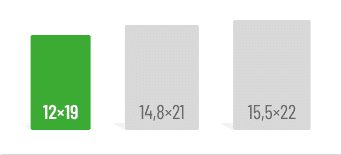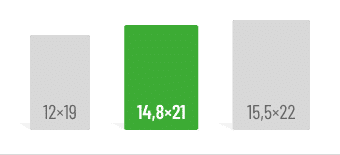First things first:
- There are numerous study programs you can complete through distance learning, often with easier admission requirements compared to traditional on-campus universities.
- A distance learning program offers great flexibility but also demands a high level of self-discipline and organization.
- Whether a distance learning program is right for you depends on your preferred learning style as well as your personal, professional, and financial circumstances.
Overview
Germany now offers a wide range of online universities, providing popular study programs such as Psychology, Business Administration, Social Work, and Education, as well as more niche fields like Media and Game Design. According to FernstudiumCheck.de, the SRH Online University ranks as the most popular online university in 2024. It is followed by EURO-FH, IST University of Management, IU, and AKAD University. A unique position is held by FernUniversität Hagen, which is Germany’s only state-funded online university.
The Advantages of Online Universities
Location Independence
Are you interested in a specific program that isn’t offered in your city or nearby? And moving isn’t an option for you? In that case, an online university could be the perfect solution. Here, you can study and attend lectures digitally without being tied to a specific location. Most online universities require only occasional on-site attendance, such as for exams.
Individualized Learning
Unlike traditional universities, where you attend numerous lectures and seminars and spend time preparing and reviewing them, online universities usually send your study materials directly to your home for self-study. Digital lectures and seminars are the exception and are often optional. This allows you to learn at your own pace and at times that work best for you.
Flexibility
If you’re working or have many personal commitments, a distance learning program might be the ideal option for you. It allows you to structure your studies more freely and customize your learning schedule. Many online universities also offer special programs for even greater flexibility, such as completing fewer modules per semester and extending the duration of your studies accordingly.
Studying Without Admission Restrictions
For many people, certain programs—such as Psychology—can feel out of reach without top grades in a general university entrance qualification. These programs often come with long waiting periods or require alternative pathways. However, online universities are more inclusive, accepting students with lower GPAs or specialized high school diplomas, allowing you to dive straight into your dream field of study.
The Disadvantages of Online Universities
High Degree of Self-Organization
Unlike many traditional universities, where your schedule is set at the start of the semester and seminar plans are provided by your professors, online universities require you to create your own study plan and manage your time effectively. You’ll need to stay on top of deadlines for exams and assignments, track how much of the material you’ve already mastered, and identify which modules you still need to complete. Additionally, access to on-campus resources, such as library databases or research labs, is often more limited. You may need to find alternative solutions to meet your academic needs.
Limited Social Interaction
The need for self-organization is further emphasized by the lack of direct contact with professors or fellow students. While you can connect with others through digital lectures, forums, WhatsApp groups, or email, you won’t experience the daily in-person interactions typical of traditional universities. Most students are spread across Germany or even internationally, making study groups and post-class meetups nearly impossible.
High Costs
Most online universities charge significant tuition fees. Unless you’re studying at FernUniversität Hagen, you can generally expect to pay between €100 and €300 per month, with some programs being even more expensive. While discounts are sometimes available for certain semesters—such as when you’re only writing your bachelor’s thesis and no longer require course materials or lectures—the total cost of completing a bachelor’s and master’s degree often adds up to a five-figure sum.
Partial Lack of Recognition
Even though reputable online universities are usually state-accredited, their reputation can vary across industries, potentially putting you at a disadvantage during the job application process. On the other hand, it’s worth noting that many companies are increasingly valuing work experience and professional expertise over the prestige of the (online) university where you earned your degree. And as mentioned earlier, gaining work experience alongside your studies is often easier with a flexible distance learning program.
Conclusion
Distance learning is quite different from traditional on-campus studies. While the course content is largely the same, the daily student experience is very different. There are no daily lectures or seminars to attend, which also means less personal interaction with your fellow students. You’ll need to take charge of your own learning and stay organized on your own. On the other hand, this approach allows you to work more, manage personal responsibilities, and study without relocating. You can learn comfortably from anywhere, at any time. Additionally, distance learning gives you access to programs that might otherwise be out of reach. However, this flexibility comes at a higher financial cost. Whether distance learning is the right choice for you ultimately depends on your personal circumstances and priorities.
Do you like our magazine? Then sign up for our GRIN newsletter now!









